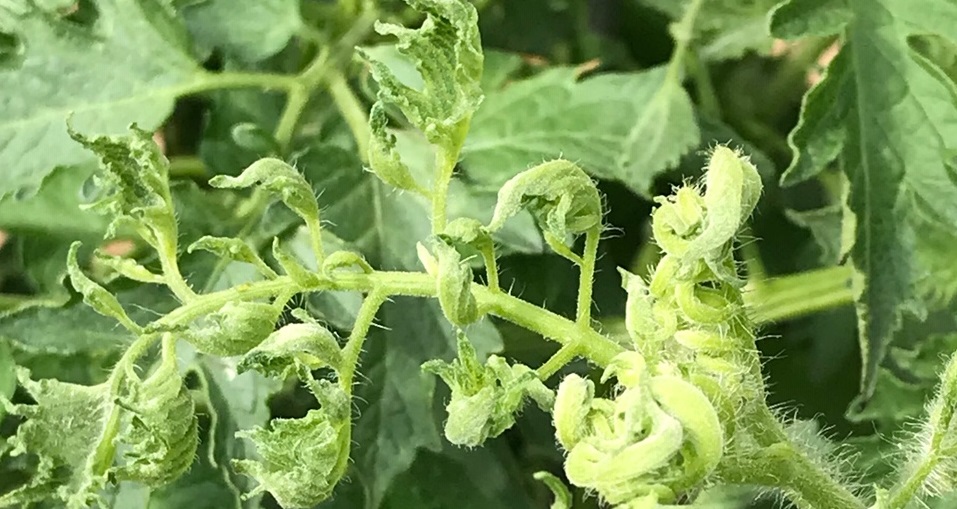Most gardeners have experienced leaf curl on tomatoes at one time or another. It is important to understand the cause so that you can make the decision on whether it is necessary to remove the plant from the garden or not.
Some causes are environmental and may be attributed to physiological conditions. When this is the case, removal of the plant is unnecessary.
Leaf Roll, aka Physiological Leaf Curl, is often seen during excessively moist, cool conditions. The leaf rolls “upward” and becomes leathery in texture. Curling leaves may also be caused by uneven watering, high temperatures or excessive drought. Plum and Paste varieties are often affected. Lower leaves are the first to be affected, and the leaves tend to roll upward with the leaflets curling inward. Oftentimes this is the plant’s attempt to decrease moisture loss due to stress in the environment. Indeterminate varieties tend to be more prone to Physiological Leaf Curl. The good news is that this disorder does not seem to affect yield, and the plants will survive.
Herbicide Drift may also cause symptoms of leaf curl. New growth is usually affected first, and downward bending of the petioles and cupping of the leaves is common. Be aware that contaminated compost containing residues from pasture herbicides may also cause symptoms. Plants affected by herbicides will not produce sufficiently and should be removed from the garden. Do not compost them.
When the cause of leaf curl is not environmental, a virus is usually to blame.
Tomato Leaf Curl may be caused by one of several viruses. “Curly Top” causes new leaves to curl and twist erratically, and leaf vein discoloration may be present. The virus is usually transmitted by whiteflies, which may be present in nearby weeds. Plant growth becomes stunted and flowers may not develop or may drop off. Plants infected by a virus should be removed from the garden as soon as it is noticed. Again, do not compost.
As with any disease, crop rotation becomes important in prevention. Because tomatoes are in the same family as peppers, eggplant and potatoes, rotations should not include these plants, nor should they be planted next to each other if possible.
Cleanliness in the garden is also important, as weeds often harbor insect vectors of viruses.
